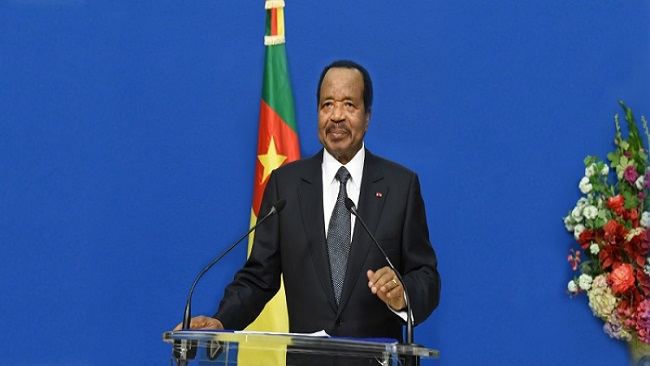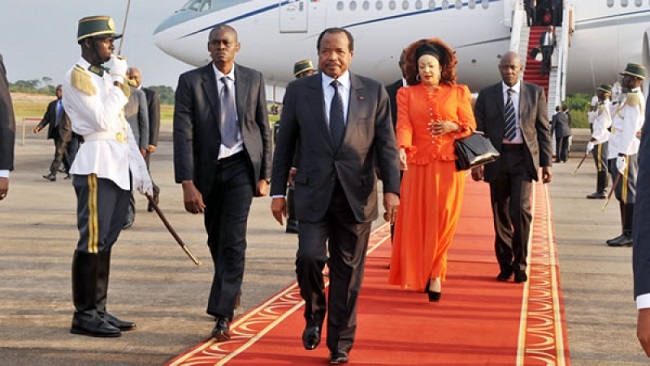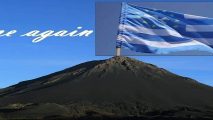6, January 2019
Ukrainian church granted independence from Russian church 0
The spiritual head of Orthodox Christians worldwide formally granted independence to the Ukrainian church on Saturday, marking an historic split from Russia which Ukrainian leaders see as vital to the country’s security.
The decree, granting “autocephaly”, was signed by Ecumenical Patriarch Bartholomew at a service with the head of the Ukrainian church Metropolitan Epifaniy and President Petro Poroshenko in St George’s Cathedral in Istanbul.
“I want to thank the millions of Ukrainians around the world who responded to my appeal to pray for the church to be established,” Poroshenko said at a ceremony accompanied by solemn liturgical singing.
“I want to thank the generations of Ukrainians who dreamed…and finally God sent us the Orthodox Church of Ukraine,” he told the congregation in the crowded church.
The patriarchate, the seat of the spiritual leader of some 300 million Orthodox Christians worldwide, endorsed Ukraine’s request for the new church in October. The decree, or Tomos, will be handed to Epifaniy at a ceremony on Sunday, completing the process of recognition by the Ecumenical Patriarchate.
Ukraine last month chose 39-year-old Epifaniy to head the new church, in a move which Poroshenko compared to Ukraine’s referendum for independence from the Soviet Union in 1991.
The move incensed Moscow, and prompted President Vladimir Putin to warn of possible bloodshed in his annual news conference. Relations between Ukraine and Russia collapsed after Moscow’s seizure of Crimea in 2014.
Ukraine imposed martial law in November, citing the threat of a full-scale invasion after Russia captured three of its vessels in the Kerch Strait.
Bitter Russian opposition
The Ukrainian Orthodox church has been beholden to Moscow for hundreds of years, and Ukraine’s leaders see church independence as vital to tackling Russian meddling.
Kiev says Moscow-backed churches on its soil are a Kremlin tool to spread propaganda and support fighters in the eastern Donbass region in a conflict that has killed more than 10,000 people. The churches strongly deny this.
“Tomos – is just a paper, the result of restless political and personal ambitions. It was signed in breach of canonicity and this is why it has no power,” Vladimir Legoida, the head of the Russian Orthodox Church Synodal Department for Church-Society and Media Relations, posted in Telegram messenger.
Epifaniy was chosen by a council at the St Sophia Cathedral in Kiev, built by the son of Prince Volodymyr whose baptism in 988 led to the spread of Christianity in the region.
The new church may boost pro-Western leader Poroshenko, who lobbied hard for its creation and faces a tight election race in March.
Russia bitterly opposes the split, comparing it to the Great Schism of 1054 that divided western and eastern Christianity. Russian Orthodox Patriarch Kirill made a last ditch appeal against the process last month.
“Huge win for Ukraine, defeat for the Kremlin,” economist Timothy Ash wrote on Twitter. “(It) will make Moscow’s hope of some future pull of Ukraine back into its ‘orbit’ nigh on impossible without the use of overwhelming (catastrophic) military force.”
Religious divisions deepened in Ukraine after 2014 and two Orthodox factions vie for dominance.
The church known as the Moscow Patriarchate, aligned with the Russian Orthodox Church, sees itself as the only legitimate church in Ukraine. On Dec. 20, Ukrainian MPs passed a law that could force the church to add “Russian” to its name.
The rival Kiev Patriarchate was born after the collapse of the Soviet Union and its popularity has grown since 2014. It favours European integration and championed the independent church but the Moscow Patriarchate denounces it as schismatic.
(REUTERS)




























6, January 2019
Congo-Kinshasa election results postponed until ‘next week’ 0
The long-awaited announcement of the results of last week’s DR Congo presidential election, promised for Sunday, will be postponed to next week, the head of the electoral commission announced on Saturday.
“It is not possible to publish the results on Sunday. We are making progress, but we do not have everything yet,” said commission president Corneille Nangaa. An exact new date has not been announced.
Last Sunday’s DR Congo presidential election has proved most divisive. The United Nations Security Council is split over how to react to this election process, according to an internal report. The United States also condemned a lack of transparency, while China, a major investor in DR Congo, lauded the process.
The election to pick a successor to President Joseph Kabila, who has ruled the country of 80 million people since his father was assassinated in 2001, should mark the first democratic transition of power since independence from Belgium in 1960.
But tensions have risen since the vote after observers reported a litany of irregularities that the opposition says is part of the ruling party’s effort to steal it.
Worried that the dispute could spark the kind of violence seen after the 2006 and 2011 elections, the Security Council met on Friday to discuss how to react.
“Tensions were mounting while the CENI tabulated the results, notably in light of posturing by parties and candidates,” Leila Zerrougui, head of the UN Stabilization Mission in Democratic Republic of Congo, told the meeting, according to the internal report.
But the 15 council members “differed in their appreciation of the problems that beset the process and were divided over the question of whether the Council should issue a press statement,” the report went on to say.
A negative or cautionary international reaction could be problematic for Kabila whose government has defended the election’s organisation, and could weaken the legitimacy of Kabila’s hand-picked successor, Emmanuel Ramazani Shadary, should he be declared winner.
Inflame the situation
In Saturday’s meeting, France pushed for the publication of a statement that recognised that Congo’s election allowed people to exercise their democratic right and called for calm, but criticised the government’s decision to cut access to the Internet and some media outlets.
The United States, which has threatened to impose sanctions against those who undermine the election process and has deployed troops to Gabon in case its citizens need rescuing from any violence, backed the statement, alongside Britain, Ivory Coast, Belgium and others.
South Africa, long a Kabila ally, said the statement could “inflame” the situation if issued before the results, the report said. Russia said it could be seen as an attempt to skew public opinion. China “lauded the manner in which elections were conducted”, the report said, and said a statement should not be published before the results.
Initial results were expected on Sunday but the electoral board (CENI) said they could be delayed because vote counts were slow in arriving. The opposition, represented by its two main candidates Martin Fayulu and Felix Tshisekedi, and the ruling coalition say their candidates have won.
Congo’s Catholic church body, CENCO, said this week that it had identified the victor based on its own tallies collected by 40,000 observers, though it did not name the winner. The declaration was widely seen as a warning to authorities against rigging the vote.
(FRANCE 24 with REUTERS and AFP)